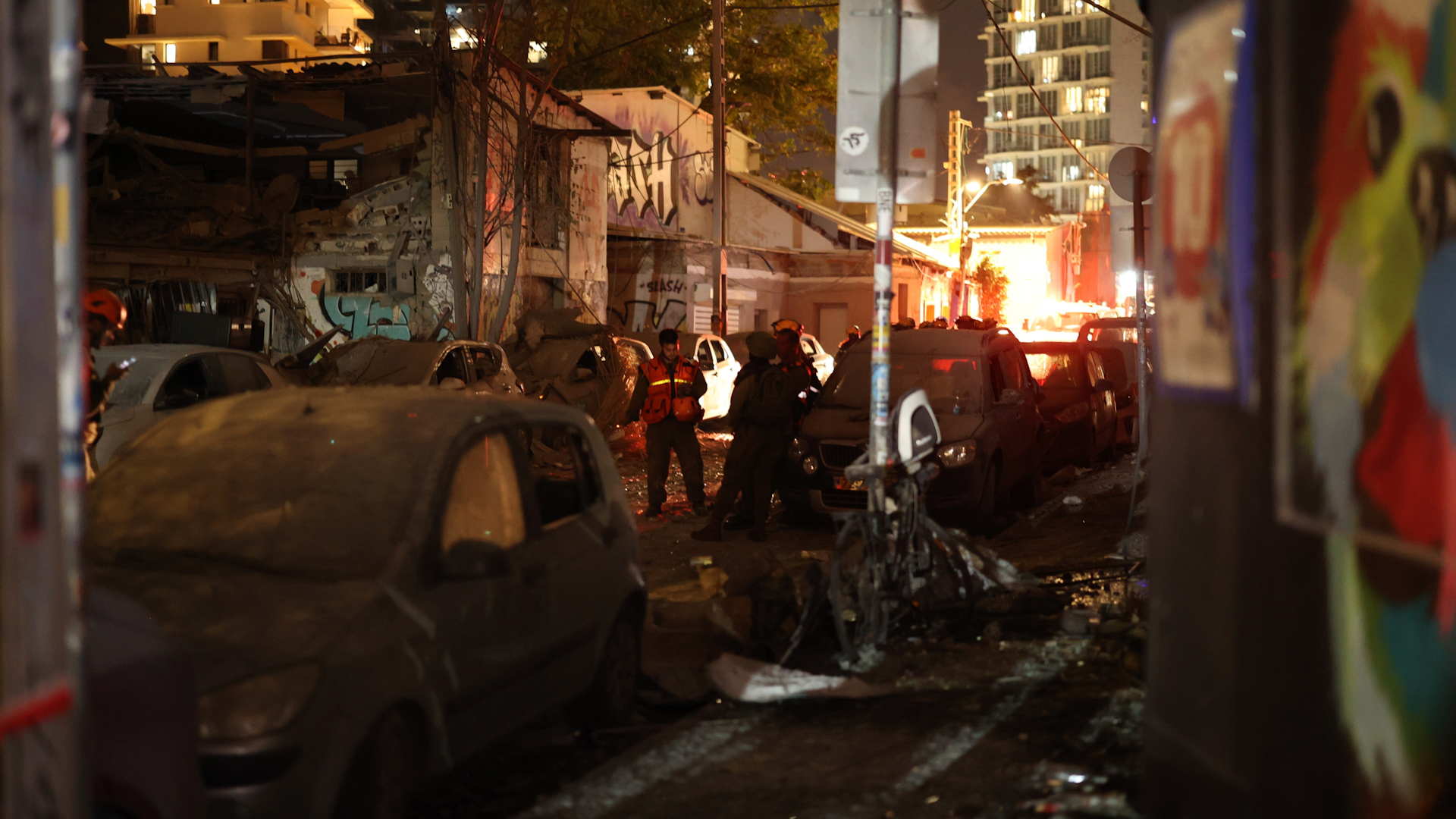On Saturday, Hamas—an Islamist terrorist group based in the Gaza Strip and funded by Iran—launched a large-scale attack on southern Israel by sea, land, and air. As of this writing, over 900 Israelis have died, 2,400 are wounded, and hundreds more have been taken hostage.
The images and videos emerging on social media are horrifying: unsuspecting partygoers slaughtered at a music festival; a father helping his children escape through a roof only to be murdered himself; terrorists parading a naked woman on the back of a pickup truck; an elderly Holocaust survivor forced to hold a gun and pose with a Hamas soldier; a young woman with two daughters, ages 5 and 3, taken as hostages. Some have likened the psychological toll on Israel to 9/11’s on America. It’s the most deadly mass killing of Jews in a single day since the Holocaust, and it’s bound to transform Israeli society in profound ways.
Irrespective of Christians’ differing views on the place of the modern nation of Israel in God’s redemptive plan, we believe this is a moment when it’s not only possible but necessary to speak out with moral clarity.
Possibility of Moral Clarity
In a sinful world, it’s never hard to find unjustifiable acts on both sides of a conflict. Anyone who condemns one side will quickly be greeted with whataboutism on social media: “What about this, that, or the other atrocity committed by the other side?”
We accept that the state of Israel hasn’t always acted blamelessly in its conduct toward the Palestinian people. To be pro-Israel in this situation, as we the authors are, isn’t to whitewash every action Israel’s government or military have taken, from its founding to today. We see the frustration, pain, and grief experienced by Palestinians, and we want to take seriously the Bible’s command to “weep with those who weep”—which includes Palestinians mourning their dead, both past and present.
This is a moment when it’s not only possible but necessary to speak out with moral clarity.
But the inevitable existence of wrongdoing on both sides doesn’t always produce a moral fog. Sometimes the fog lifts. Russia’s invasion of Ukraine, for instance, can be condemned by Christians without hesitation. Hamas’s attack on Israel is a similarly clear example of wrongdoing that can be firmly condemned without equivocation.
Christian discernment looks at both the nature of an action and its aims. If Hamas had simply taken civilian hostages, the act itself would have been evil (the Bible forbids kidnapping), but the aim might arguably have had some military justification—hostages have been exchanged in the past for Palestinian prisoners. But Hamas hasn’t simply taken hostages. It deliberately designed military operations with the aim of murdering civilians. Those civilian victims weren’t the collateral damage of attacks on military targets; the civilians themselves were the targets. There is no biblical justification for this butchery.
Benefits of Moral Clarity
Anyone who has pastored a politically divided church will know how important it is to maintain balance when speaking about political matters. We can get so used to presenting both sides of an issue that the idea of coming down on one side seems like an obvious pastoral mistake. But when moral clarity is justified, it brings great benefits.
1. General Benefits of Moral Clarity
As Jean Bethke Elshtain has observed,
If we could not distinguish between an accidental death resulting from a car accident and an intentional murder, our criminal justice system would fall apart. And if we cannot distinguish the killing of combatants from the intended targeting of peaceable civilians, we live in a world of moral nihilism. In such a world, everything reduces to the same shade of gray and we cannot make distinctions that help us take our political and moral bearings.
Getting our bearings in this way gives us a better sense of who and what to trust. Some foreign governments, such as the Qatar Foreign Ministry, have issued statements holding Israel “solely responsible for the ongoing escalation due to its continuous violations of the rights of the Palestinian people.” Other governments, including some Arab governments, have chosen not to blame Israel. This kind of unmasking is useful for Christians involved in foreign policy or working in the Middle East.
Moral clarity on the current conflict also helps us prepare for as-yet-unknown events that may be closer to home. By exercising our discernment muscles, we become better equipped to think rightly in the future. Dietrich Bonhoeffer’s moral perceptiveness led him to see the horror of Nazism at a time when many other Christians found the evidence ambiguous. His strong moral vision brought glory to God, and we follow in his footsteps when we’re clear about events we ought to be clear about.
2. Specific Benefits of Moral Clarity
Moral clarity produces imperatives: “musts” and “must nots.” To use a nonpolitical example, Paul demanded the church in Corinth “expel the wicked person from among [them]” (1 Cor. 5:13, NIV). The man in question was doing what Christians must not do (v. 1), and that led to the must of excommunicating him from the local church.
Clarity regarding Hamas’s attacks on Israel allows for imperatives to guide God’s people. On Sunday, marchers in a pro-Palestinian rally in New York City chanted, “Resistance is justified when people are occupied.” Christians must not participate in rallies of that kind (or their social media equivalent), which make defenses for the indefensible, intentional slaughter of civilians. Defending the indefensible (characterizing murder, rape, and kidnapping as “resistance”) isn’t how we weep with those who weep.
Moral clarity also allows for suitably one-sided prayer. It’s right to pray for the swift defeat of Hamas. The murderous operations room of Hamas will never provide good leadership for the Palestinians living in Gaza. We should by all means pray for both-sided things too: the salvation of people on both sides; the protection, healing, and comfort of people on both sides; and the growth of the church that lives inside the borders of both nations. Even as we pray for these both-sided things, let us boldly call on our God to thwart, frustrate, and defeat the one side that is hell-bent on terrorism.



